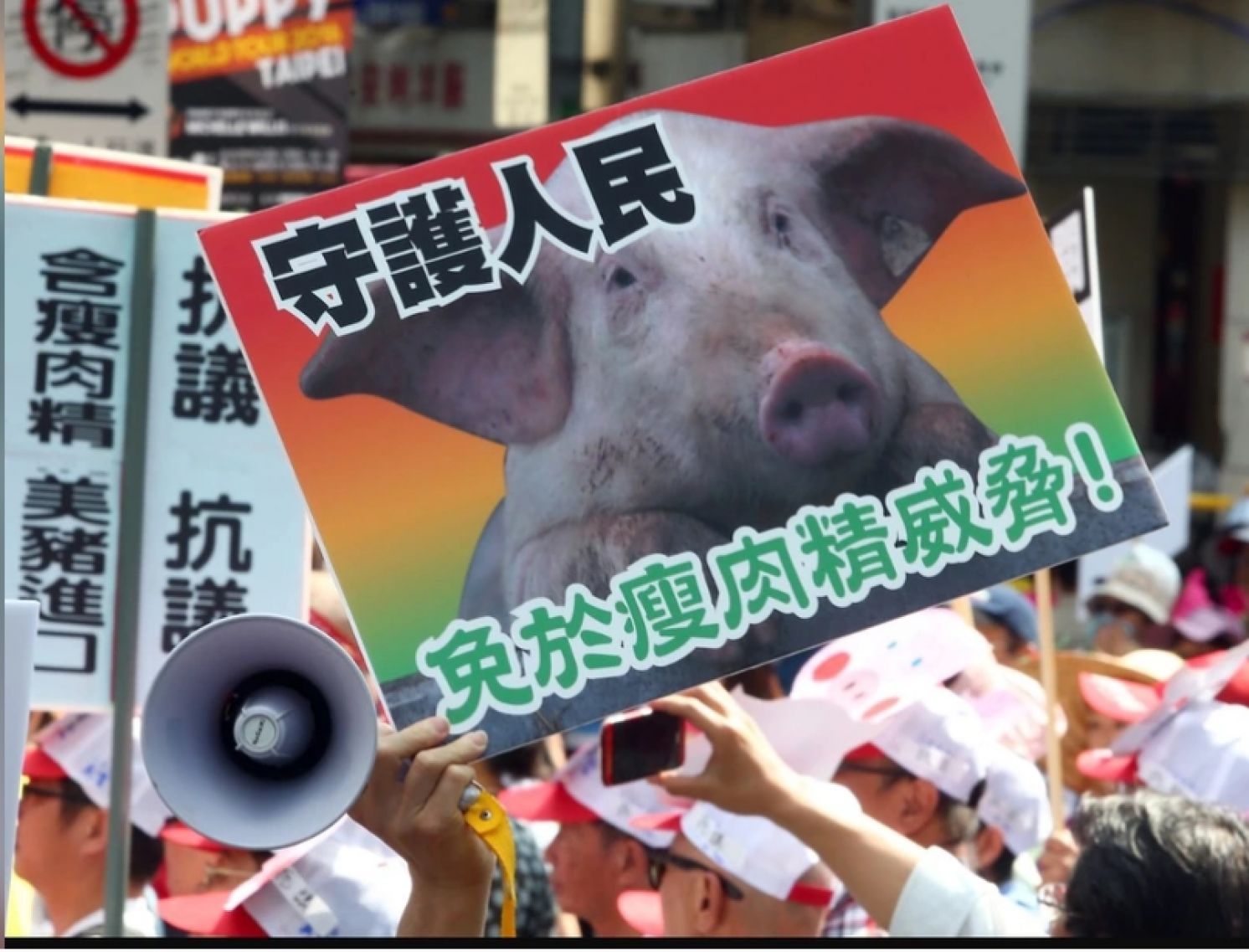
President Tsai Proves DPP Misled Taiwan on U.S. Pork Import Policy
United Daily News Editorial, August 29, 2020
President Tsai Ing-wen made a surprise attack on August 28 before the weekend by announcing that Taiwan will allow import of American pork containing ractopamine, a controversial feed additive, and American beef from cattle aged over 30 months effective January 1, 2021. The order will not require approval from the Legislative Yuan, Tsai said. Standing next to her were the vice president and premier, who supposedly endorse her open trade policy. President Tsai, together with her high-level officials of her administration, reminded the people that they were the protagonists who blocked the import of American pork and beef into Taiwan under the name of "people’s food security" eight years ago. History would bear testimony to every word that the Tsai Administration said to the people, evidencing that she and the Democratic Progressive Party (DPP) misled the country and its people by hook or by crook only for the benefit of the DPP.
According to President Tsai, the opening-up policy is based on national economic interests. Moreover, it was in line with the overall strategic goals of the future. Taiwan must grasp the strategic opportunities to overcome obstacles and open a new way for the country.
If the opening-up policy was critically important, then the DPP members who occupied the assembly hall of Legislative Yuan 8 years ago were the firebrands who blocked Taiwan’s access to find a way out. Though the Codex Committee established maximum residue limits of 10 parts per billion (ppb) for ractopamine in beef and pork in 2012, regrettably, after one year they advocated "detection of zero ractopamine" by mobilizing the people to take to the street in a move to block the import of American pork and "waged a full-scale war" against the cabinet of Premier Jiang Yi-huah cabinet under President Ma Ying-jeou, which embraced the opening-up policy. As a result, U.S.-Taiwan free trade talks stalled.
The whole of central government and the ruling DPP were cleaning up the mess they had made, and claiming that the “there had been a substantial change of circumstances” and boasting that they struck a different tone since 2012. Unfortunately, only after one year, then legislators Lee Chin-yung and Liu Chien-kuo, even former DPP Chairman Su Tseng-chang, get together farmers to demonstrate against the opening-up policy embraced by the Kuomintang (KMT). Should they apologize to the people today? Definitely yes, they should admit their political exploitation of the American pork issue. Plus, after grabbing votes, they turned their back on local pig farmers. They hid behind the shield of "the overall national interests". As an opposition party, the DPP would defend the people’s interests; while in power, the DPP would put emphasis on the importance of future national development instead. In fact, they are all politically motivated by the maximization of the DPP’s interests.
If the DPP had not obstructed the import of the American pork in 2013, the Ma’s Administration could have got the opportunity to make progress in the Taiwan-U.S. free trade talks. As Taiwan signed the Economic Cooperation Framework Agreement (ECFA) with mainland China in 2010, this island republic could be able to achieve an economic and trade balance among Taiwan, the U.S. and mainland China. As a result, Taiwanese business people could have diversified their investment plans, creating more room for them to make industrial transformation and to diversify their supply chain as well. Unfortunately, due to the DPP boycott, Taiwan had completely lost its opportunities.
As chairwoman of the DPP, President Tsai should apologize to the people of Taiwan for eight years of procrastination during which the DPP had harvested the political dividend of its boycott of American pork import. If the free trade talks are more important to Taiwan than the blockage of American pork containing ractopamine from accessing Taiwan market, why did the DPP succeed in suppressing the KMT-embraced negotiations with the U.S. by any means whatsoever in the past? Until now, the Tsai administration hasn’t yet come up with a risk assessment of import of American pork, instead it required the islanders on Taiwan to give in to the United States unconditionally. But what they got from the United States was to negotiate admission ticket to the proposed bilateral free trade agreement (FTA) only. Before the two sides reach a free trade agreement, we wonder how many bills are to be paid. Today the Tsai Administration could ignore public opinion and arbitrarily made "critical decisions" for Taiwan instead. However, in the future development of U.S.-Taiwan relations, an equally worrying situation will be how many bargaining chips are being built up in the Tsai administration’s black box.